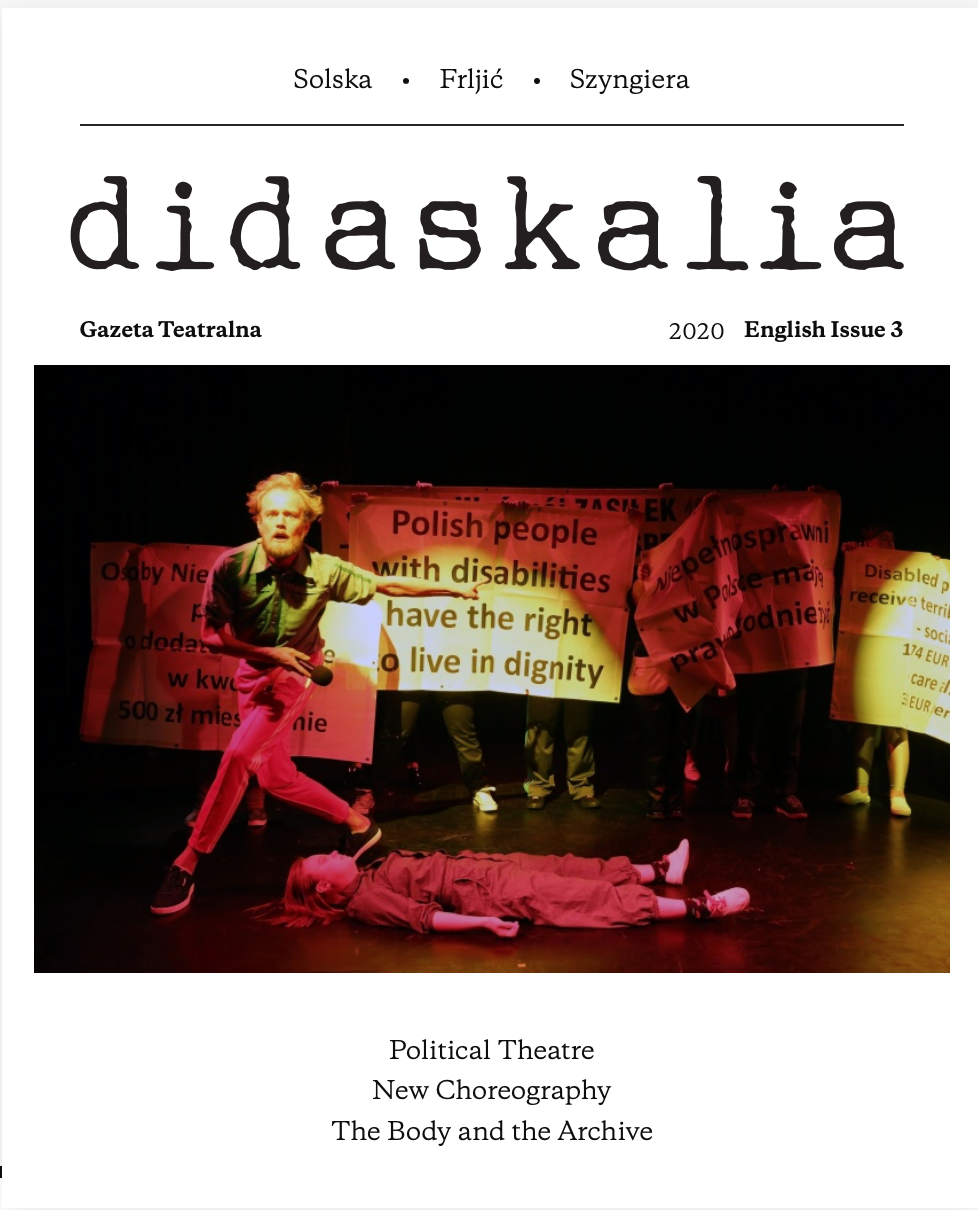Didaskalia. Gazeta Teatralna, English Issue 3/2020
Trzeci numer angielski „Didaskaliów” zawiera wybór tekstów naukowych i publicystycznych drukowanych w piśmie w latach 2017-2020. Wybór daje przegląd najgłośniejszych wydarzeń w najnowszym polskim teatrze: od przedstawień Teatru 21 po Klątwę w reż. Olivera Frljicia; od feministycznej grupy Teraz Poliż po spektakle on-line produkowane w czasie pandemii. Zgodnie z charakterem pisma, obejmujemy spojrzeniem nie tylko teatr dramatyczny, ale także taniec współczesny (teksty o dramaturgii i ciele w tańcu); nie tylko teatr współczesny, ale także XIX-wieczny (tekst o korespondencji Ireny Solskiej ze Stanisławem Eliaszem Radzikowskim); nie tylko teatr polski, ale i zagraniczny (artykuł o zwierzętach w teatrze Romea Castellucciego). Prezentowany wybór tekstów jest zarazem przeglądem narzędzi i perspektyw, które dominują w aktualnej teatralnej debacie: teoria archiwum, teoria afektu, krytyka instytucjonalna, krytyka feministyczna, studia o niepełnosprawności.
Wszystkie artykuły są dostępne bezpłatnie na stronie: https://didaskalia.pl/en/issue/english-issue-3
Bringing together a selection of academic and journalistic pieces published in our journal in 2007‒2020, this third issue of English-language Didaskalia offers a snapshot of Poland’s current theatre landscape by shining a spotlight on some significant events: from Teatr 21’s shows to Oliver Frljić’s production of The Curse, from the work of TerazPoliż to live streams during the Covid-19-induced lockdown. In the spirit of Didaskalia’s mandate, our contributors explore not only dramatic theatre but also dance performance (dramaturgy and choreography of the body). The texts presented in this volume span contemporary and nineteenth-century theatre (correspondence between Irena Solska and Stanisław Eliasz Radzikowski), Polish and international theatre work (e.g. an examination of the presence of animals in Romeo Castellucci’s productions). Perspectives and tools deployed in ongoing debates in theatre are described, including archival theory, affect theory, institutional critique, feminist critique and disability studies.
Access to all content is free: https://didaskalia.pl/en/issue/english-issue-3

